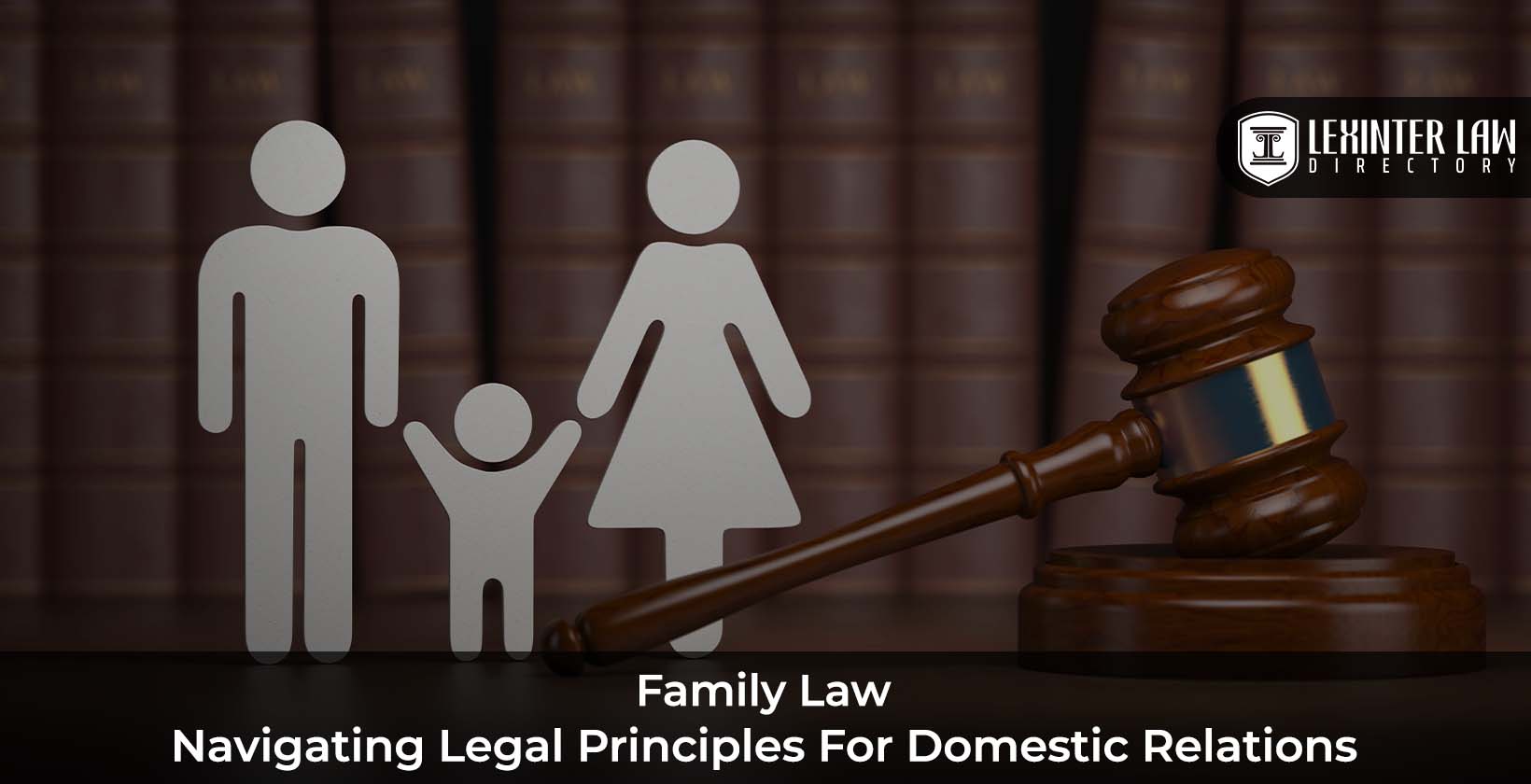What to Do After a Minor Rear-End Car Accident
Whether it’s a fender bender or a full-fledged collision, car accidents can be a pain in the neck – literally and figuratively. But when it comes to rear-end crashes, there are some specific steps you should take to protect yourself and your rights. Here’s what to do if you find yourself on the receiving end of a rear-end collision:
1. Pull Over and Stay Calm
After a rear-end accident, it’s important to pull over to a safe location if possible. Once you’re out of the way of traffic, take a moment to collect your thoughts and assess the situation. It’s easy to get caught up in the adrenaline of the moment, but staying calm will help you make better decisions about what to do next.
First, check yourself for injuries. Even if you don’t feel any pain right away, it’s important to get checked out by a doctor as soon as possible. Some injuries, like whiplash, may not show up immediately.
Once you’ve checked yourself for injuries, get out of your car and check on the other driver(s) involved in the accident. If anyone is injured, call 911 immediately.
If there are no injuries, you can start to gather information from the other driver(s) involved in the accident. This includes their name, contact information, insurance information, and license plate numbers. You should also take pictures of the damage to both cars and the accident scene. These photos will be helpful when you file an insurance claim.
Once you have all the necessary information, you can exchange insurance information with the other driver(s) and file a police report. If you’re not sure how to file a police report, you can call the police non-emergency number or visit your local police station.
After you’ve filed a police report, you should contact your insurance company to report the accident. Your insurance company will be able to help you file a claim and get your car repaired or replaced.
Do You Have Whiplash After a Minor Bump From a Rear-End Accident?
A fender-bender is a minor car accident that can still be stressful. You might be shaken up and wondering what to do next. The most important thing is to stay calm and check for injuries.
Stay Calm and Check for Injuries
After the accident, pull over to the side of the road, if possible. Check yourself and any passengers for injuries. If someone is injured, call 911 immediately. If you suspect that someone is injured, but they don’t want to call 911, encourage them to see a doctor as soon as possible. Even if you don’t feel injured, it’s important to see a doctor. Some injuries, such as whiplash, may not be immediately apparent.
Whiplash After a Rear-End Accident
Whiplash is a common injury after a rear-end accident. It occurs when the head is suddenly thrust backward and then forward. This can cause damage to the muscles, ligaments, and nerves in the neck. Symptoms of whiplash include neck pain, stiffness, headaches, and dizziness. Most people with whiplash recover within a few weeks, but some people may have long-term problems.
There are a few things you can do to help prevent whiplash after a rear-end accident. First, make sure you have your headrest adjusted properly. Second, try to stay relaxed and avoid tensing up your muscles when you’re driving. Finally, if you’re in an accident, brace yourself by gripping the steering wheel and pushing your head back into the headrest.
Whiplash can be a serious injury, but it can be prevented and treated. If you’re concerned about whiplash, talk to your doctor to head off trouble in the future.
Rear-End Car Accidents: What to Do After a Minor Collision
Getting into a car accident can be a frightening and stressful experience, even if it’s a minor one. If you’re involved in a rear-end collision, it’s important to know what to do to protect yourself and your rights.
Here are some steps to follow if you’ve been involved in a rear-end car accident:
Stay Calm and Assess the Situation
First and foremost, stay calm and take a few deep breaths. It’s understandable to be shaken up after an accident, but panicking will only make things worse. Once you’ve calmed down, take a moment to assess the situation. Are you injured? Are there any other injuries? Is your car drivable? If you’re able, get out of your car and check on the other driver involved. Even if it seems like a minor accident, it’s always best to err on the side of caution and call the police. They can help to create a report of the accident, which will come in handy if you need to file an insurance claim.
Exchange Information
Once everyone is safe, exchange information with the other driver(s) involved. This includes names, contact details, insurance information, and license plate numbers. If possible, take photos of the accident scene and the damage to both vehicles. These photos will be helpful when you file an insurance claim.
Document the Accident
In addition to exchanging information with the other driver, it’s also important to document the accident yourself. This can be done by writing down everything you remember about the accident, including the date, time, location, and a description of what happened. You should also take photos of the accident scene, the damage to your car, and any injuries you may have sustained. These documents will be helpful if you need to file an insurance claim or take legal action.
Report the Accident to Your Insurance Company
As soon as possible after the accident, report it to your insurance company. They will need to know the details of the accident so that they can start the claims process. Be sure to provide them with all of the information you gathered at the scene of the accident, including the police report, photos, and witness statements.
Seek Medical Attention if Needed
Even if you don’t think you’re injured, it’s important to see a doctor after a car accident. Some injuries, such as whiplash, may not show up right away. Seeing a doctor can help to rule out any serious injuries and get you the treatment you need.
Rear-End Car Accident Involving Minor Injuries: A Guide to Navigating the Aftermath
In the aftermath of a rear-end accident, it’s easy to feel overwhelmed and uncertain. Here’s a comprehensive guide to help you navigate the process effectively and ensure your interests are protected.
Take Photos and Gather Evidence
Document the scene thoroughly by capturing photos of the damage to all vehicles involved, including any visible injuries. Take pictures of the surrounding area, including traffic signs, road conditions, and any potential hazards. Gather contact information from all parties involved, including witnesses, and exchange insurance details.
Seek Medical Attention
Even if you don’t feel injured initially, it’s crucial to seek medical attention. Some injuries, such as whiplash, may not become apparent until later. Medical records will provide valuable documentation of your injuries and support your insurance claim.
File a Police Report
In many cases, filing a police report is essential for insurance purposes. It provides an official record of the accident and can help determine fault. Be sure to obtain a copy of the report for your records.
Contact Your Insurance Company
Notify your insurance company promptly about the accident. Provide them with all the necessary details, including the police report number and the contact information of the other driver. Cooperate with their investigation and provide any requested documentation.
Negotiate with the Other Driver’s Insurance Company
Once the insurance companies have assessed the damages and determined fault, they will begin negotiating a settlement. You have the right to represent yourself during this process or hire an attorney to assist you. Be prepared to provide evidence to support your claim and negotiate a fair settlement that covers your medical expenses, property damage, and other related costs.
Get a Copy of Your Medical Records
Request copies of your medical records from all healthcare providers who treated you for injuries sustained in the accident. These records will serve as essential documentation for your insurance claim and any potential legal proceedings.
Hire an Attorney if Necessary
If you are unable to reach a fair settlement with the other driver’s insurance company, or if you have sustained severe injuries that require ongoing medical care, consider consulting with an experienced personal injury attorney. They can provide legal advice, represent you in court, and help you maximize your compensation.
Stay Informed and Advocate for Your Rights
Stay informed about your rights and the legal process involved in car accident cases. Don’t hesitate to ask questions and seek clarification from your insurance company, medical providers, or legal counsel. Remember, you have the right to fair compensation and justice after a rear-end accident.
Rear-End Minor Car Accident: What to Do?
You’re minding your own business, driving along, when suddenly, WHAM! You get rear-ended. It’s a minor accident, but it’s still a pain in the neck. What do you do now? Here’s a step-by-step guide to help you navigate the aftermath of a minor rear-end car accident.
Stay Calm
It’s natural to feel shaken up after a car accident, but it’s important to stay calm and collected. This will help you think clearly and make the best decisions for yourself and your passengers.
Check for Injuries
First and foremost, check yourself and your passengers for injuries. Even if you don’t feel any pain at first, it’s possible to have sustained an injury that doesn’t manifest itself immediately. If you or anyone else is injured, call 911 immediately.
Move to a Safe Location
If possible, move your car to a safe location out of traffic. This will help prevent further accidents and allow you to safely exchange information with the other driver.
Exchange Information
Once you’re in a safe location, exchange the following information with the other driver:
Report the Accident to the Police
In most cases, it’s not necessary to report a minor rear-end accident to the police. However, there are some exceptions to this rule. You should report the accident to the police if:
- There are any injuries
- There is significant property damage
- The other driver is uninsured or does not have a valid driver’s license
- You suspect the other driver was driving under the influence of alcohol or drugs
- You cannot reach an agreement with the other driver about who is at fault
Contact Your Insurance Company
As soon as possible after the accident, contact your insurance company to report the accident. They will be able to help you file a claim and get your car repaired or replaced.
Get a Copy of the Police Report
If you do report the accident to the police, be sure to get a copy of the police report. This will be helpful if you need to file a claim with your insurance company or if you need to take legal action against the other driver.
Hire an Attorney
In some cases, it may be necessary to hire an attorney to help you with your case. This is especially true if you have been seriously injured or if the other driver is disputing fault.
Rear-End Minor Car Accident: What to Do
You’re driving along, minding your own business, when suddenly, BAM! You get rear-ended by another car. It’s a minor accident, but it’s still a pain in the neck. What do you do now?
Stay Calm and Assess the Situation
First things first, take a deep breath and stay calm. It’s easy to get flustered after an accident, but panicking will only make things worse. Once you’ve calmed down, take a moment to assess the situation. Is anyone injured? Is your car drivable? If so, pull over to the side of the road, turn on your hazard lights, and get out of your car.
Exchange Information
Once you’re out of your car, exchange information with the other driver. This includes your name, address, phone number, insurance company, and policy number. You should also take pictures of both cars, including any damage. If there are any witnesses, get their names and contact information as well.
Contact Your Insurance Company
Notify your insurance company promptly to report the accident and file a claim. They will be able to help you get your car repaired or replaced, and they will also represent you in any legal proceedings that may arise from the accident.
Get a Police Report
In most cases, you will not need to get a police report for a minor car accident. However, there are some exceptions to this rule. For example, if there are any injuries or if the other driver is uninsured, you should get a police report. You can also get a police report if you believe that the other driver was at fault for the accident.
Hire an Attorney
If you have been injured in a car accident, you may want to consider hiring an attorney. An attorney can help you get the compensation you deserve for your injuries and damages. They can also represent you in court if necessary.
Don’t Panic!
It’s important to remember that a minor car accident is not the end of the world. By following these tips, you can help to make the process as smooth as possible. Just stay calm, assess the situation, and take the necessary steps to protect yourself and your rights.
After a Rear-End Minor Car Accident: What You Should Do
You just got rear-ended. You’re probably feeling shaken up, and your head is spinning. What do you do next? Here are some steps to follow:
1. Pull Over
If possible, pull over to the side of the road. This will help prevent further accidents and give you a chance to collect your thoughts.2. Check for Injuries
First, check yourself for injuries. Then, check your passengers. If anyone is injured, call 911 immediately.3. Exchange Information
Once you’ve checked for injuries, exchange information with the other driver. This includes your name, address, phone number, insurance information, and license plate number.4. Take Photos
If possible, take photos of the accident scene. This will help you document the damage and provide evidence to your insurance company.5. Report the Accident
You should report the accident to your insurance company as soon as possible. They will be able to help you file a claim and get your car repaired or replaced.6. Get a Copy of the Police Report
If there was a police report, you should get a copy of it. This will provide you with an official record of the accident.7. Seek Legal Advice
If you have any questions about your rights or if you are injured, you should seek legal advice. An attorney can help you protect your interests and get you the compensation you deserve.Seek Medical Attention if Needed
Even if you don’t feel injured immediately, it’s advisable to seek medical attention within 24 hours to rule out any underlying injuries. Some injuries, such as whiplash, may not manifest themselves immediately. By seeking medical attention promptly, you can ensure that you get the treatment you need to prevent further complications.
Rear-End Minor Car Accident: What to Do?
Getting into a car accident, even a minor one, can be a jarring experience. When you’re involved in a rear-end collision, it’s essential to take the necessary steps to protect yourself and your rights. In this article, we’ll provide a comprehensive guide on what to do after a rear-end minor car accident, from exchanging information to seeking medical attention and filing an insurance claim.
1. Stay Calm and Ensure Safety
After a rear-end accident, staying calm is paramount. Pull over to a safe location if possible and turn on your hazard lights. Check for any injuries and call 911 immediately if necessary. Don’t leave the scene, even if the damage appears minor.
2. Exchange Information
Once you’ve ensured everyone’s safety, exchange information with the other driver(s) involved. This includes names, addresses, phone numbers, insurance companies, and policy numbers. Take photos of the damage to both vehicles and the surrounding area.
3. Get a Copy of the Police Report
If a police report was filed, request a copy for your records to provide to your insurance company. The report will contain details about the accident, including the officer’s observations and any citations issued.
4. Notify Your Insurance Company
Report the accident to your insurance company as soon as possible. They will guide you through the claims process and provide you with an adjuster to handle your case.
5. Seek Medical Attention
Even if you don’t feel injured immediately, it’s crucial to seek medical attention. Some injuries, such as whiplash, may not manifest until later. A doctor can examine you, document any injuries, and provide treatment.
6. Gather Evidence
In addition to exchanging information and taking photos, gathering other evidence can help support your claim. This could include witness statements, a dashcam recording, or medical records. The more documentation you have, the stronger your case will be.
7. Don’t Admit Fault
It’s tempting to apologize after an accident, but avoid admitting fault until all the facts are clear. Even a seemingly innocent statement can be used against you by the other driver’s insurance company.
Rear-End Minor Car Accident: A Comprehensive Guide
Let’s face it, not all car accidents are created equal. They range from minor fender-benders to serious, even fatal, collisions. If you’ve recently been involved in a minor rear-end accident, you may be dealing with a range of emotions, from shock to frustration. It’s important to remember that you’re not alone. In fact, rear-end accidents are one of the most common types of car accidents in the United States.
While minor rear-end accidents are generally less severe than other types of collisions, they can still be a major inconvenience. They can cause property damage, injuries, and emotional distress. That’s why it’s important to know what to do after a rear-end accident, from exchanging information with the other driver to filing an insurance claim. In this article, we’ll provide you with everything you need to know about rear-end minor car accidents, from the legal and financial implications to the physical and emotional effects.
What to Do After a Rear-End Accident
So, you’ve been in a rear-end accident. What do you do now? First, make sure everyone is safe and call the police. If there are any injuries, no matter how minor, seek medical attention immediately. Once you’ve taken care of the immediate aftermath, you can start to gather information about the accident.
- Exchange information with the other driver(s) involved in the accident. This should include your name, address, phone number, insurance information, and license plate number.
- Take photos of the damage to your vehicle and the other vehicle(s) involved in the accident.
- Get the names and contact information of any witnesses to the accident.
- File a police report. This will provide you with an official record of the accident.
- Contact your insurance company to file a claim.
Potential Injuries from a Rear-End Accident
Even minor rear-end accidents can cause injuries. Some of the most common injuries include:
- Whiplash
- Back pain
- Neck pain
- Headaches
- Dizziness
- Nausea
- Sprains and strains
- Bruises
- Cuts
Legal and Financial Implications of a Rear-End Accident
In most cases, the driver who rear-ends another vehicle is considered at fault for the accident. This means that they may be responsible for paying for the damages to your vehicle and any injuries you sustain. However, there are some exceptions to this rule. For example, if you were stopped at a red light and the other driver rear-ended you, you may not be at fault for the accident.
If you’ve been involved in a rear-end accident, it’s important to contact a lawyer to discuss your legal rights. They can help you determine who is at fault for the accident and what your options are for recovering compensation for your damages.
Be Aware of Potential Scams
Unfortunately, there are some people who will try to take advantage of you after you’ve been in a car accident. They may try to convince you to sign a document that waives your right to sue them or they may try to pressure you into getting a medical exam from a doctor who they work with. If you’re ever in doubt about something, always trust your gut and don’t sign anything or agree to anything until you’ve had a chance to talk to a lawyer or insurance company
Being in a car accident is never fun, but it’s especially frustrating when the accident is caused by someone else’s negligence. If you’re in a rear-end collision, it’s important to seek medical attention as soon as possible, even if you don’t feel injured. It’s also important to contact your insurance company and report the accident. If you need help getting a rental car or getting your car repaired, your insurance company will be able to assist you. Injured in a rear-end accident? Call an experienced car accident lawyer today to help you navigate the legal process and maximize your recovery. Don’t let the insurance company take advantage of you: get the compensation you deserve.
Dealing with the aftermath of a car accident can be stressful, especially if you’re injured or have to deal with insurance companies. However, by following these tips, you can get the help you need and get back on the road to recovery. Remember, you’re not alone and there are people who can help you through this process.
If you’ve been injured in a rear-end collision, don’t wait to get help. Contact an experienced car accident lawyer today to learn about your legal rights and options. You may be entitled to compensation for your injuries, lost wages, and other damages. Don’t let the insurance company take advantage of you. Get the justice you deserve.




Leave a Reply